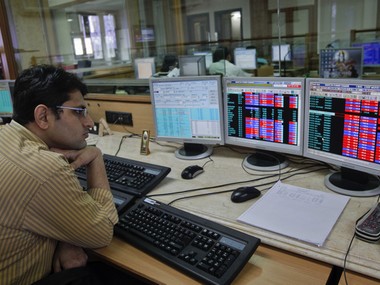New Delhi: In massive market sell-off, banking shares bore the biggest brunt, tumbling up to 9 per cent and were also instrumental in dragging the BSE’s key bellwether index lower.
#MarketSellOff | Nifty Bank breaches March 13 low of 21,352, trades at a 3-year low pic.twitter.com/AL43RTCvxP
— CNBC-TV18 (@CNBCTV18Live) March 18, 2020
Among frontline companies, ICICI Bank tumbled 8.95 percent, IndusInd Bank dropped 8.89 percent, HDFC 4.74 percent, Kotak Mahindra Bank 4.53 percent, Axis Bank 3.95 percent, SBI 3.74 per cent and HDFC Bank 2.38 per cent on the BSE. [caption id=“attachment_4474529” align=“alignleft” width=“380”] Representational image. Reuters.[/caption] Also, Federal Bank declined 7.99 percent and City Union Bank fell by 3.02 percent. Tracking drop in these companies, the BSE Bank index fell by 4.46 percent. “Indian equity markets traded in the positive for the majority of the day, before falling sharply in the last hour of the session, mirroring the global markets. Concerns over the fast spreading coronavirus across the globe will most likely continue to weigh on the markets. In fact its impact on the economy will be felt for a longer period though the exact nature and quantum of the same is difficult to estimate at current juncture. Thus, volatility is likely to continue in near term with downward pressure on the markets,” according to Siddhartha Khemka, head - Retail Research, Motilal Oswal Financial Services. From the index companies, Yes Bank and RBL Bank defied the bearish trend and closed the day with gains. Yes Bank zoomed over 58 percent after Moody’s upgraded the company’s ratings. RBL Bank gained 1.38 percent. The BSE benchmark index plunged 810.98 points or 2.58 percent to close at 30,579.09.


)

)
)
)
)
)
)
)
)



